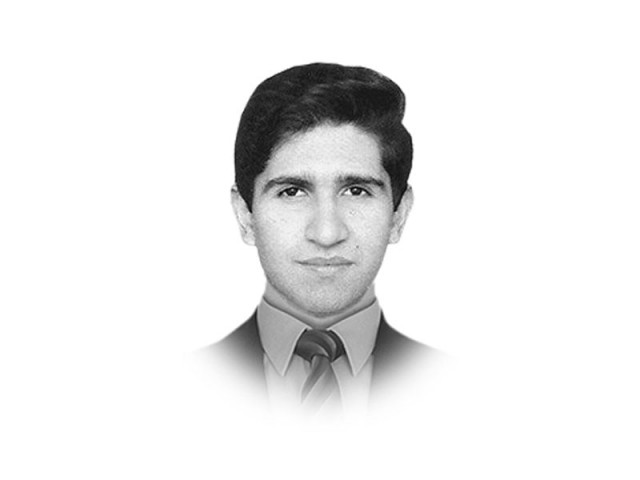Think, Pakistan, think
We need to think rationally about problems facing us today, without indulging in emotionality which overshadows logic.

The writer is a PhD in conflict studies and an independent security analyst. He has also taught at the University of Central Lancashire, UK
I may not necessarily agree with Ms Ayesha Jalal on her opinion that Pakistanis live on an unhealthy mixture of collective self-denial, but I do believe that as Pakistanis, we sometimes stop rationalising things at the expense of emotionalising them. I have met thousands of patriotic, God-fearing, honest, hard working, moderate and law-abiding Pakistanis, who believe that Pakistan is the bastion of Islam, Pakistan is the victim of outside forces, or perceptions to that effect. I don't doubt that Pakistan has been a victim of the great geopolitical games in the past, and may very well continue to be. I also don’t refute the fact that notwithstanding the arguably secular motives of the founders of Pakistan, the country was obtained in the name of Islam. What I will propose is that whenever these or many other arguments, which affect us all, are brought up by seemingly educated, rational, moderate Pakistanis with exposure to the modern world, they are often tinged with emotionality.
Emotionality is, of course, not a bad thing, especially where passionate beliefs are concerned. However, sometimes this emotionality of ours is not amenable to the permeation of alternative ideas. Interrupt the flow of these emotions and you may be met with scepticism and even outright hostility or be branded unpatriotic or something like it. Again, that passion is common to many people of the world who have gained independence after great struggle and sacrifice, but there is a difference in the Pakistani narrative. It is now almost always the narrative of victimisation; Pakistan almost always seems to have been dismembered, not allowed to work, or conspired against. Again, that is not abnormal; states try to disrupt the growth of rival states that they deem as threats, and on the heels of such perceptions, the actions of many states in the world have been less than honourable. Violations of territorial sovereignty, interference in governance or espousing violence by outside forces are never condonable and should rightly be met with justified indignation.
However, this narrative needs to be tinged with some self-introspection as well. It just cannot be true that every malady that ails us currently is imposed by some outside entity and neither is it true that we have courted every problem that has befallen us; it has to be a mixture of many variables. Everyone will tell you that Pakistanis are by large sufferers of poor socio-economic opportunities; it's partly true, but this should not detract from understanding the underlying political, social and cultural causative conditions. I do not believe that there is any Pakistani endemic inertia, which drives Pakistan closer to the abyss. Pakistan's current imbroglio is a result of cause and effect, an inevitable causality which follows decades of neglect and mal-governance. However, even then, Pakistan continues to survive. Besieged by terrorism, unemployment, energy shortages, economic deficit, corruption and bad governance, Pakistan is very much there. We could probably blame some entity for any or all of our problems, but unless we make an informed analysis, we will not be able to make an informed decision. I could go on and on, but the point I want to make is that sometimes we need to sit down, individually and collectively, to think rationally about the problems that face us today, without indulging in emotionality which may overshadow logic. Of course, this may not solve all our problems immediately; rational thinking can bring about enormous benefits to society, but one cannot expect every decision reached in consequence to be immediately remedial or even effective. What this will achieve is that we may start getting closer to the roots of our problems. We may then learn to blame ourselves as much as we sometimes tend to blame others for our problems.
Published in The Express Tribune, February 17th, 2013.















COMMENTS
Comments are moderated and generally will be posted if they are on-topic and not abusive.
For more information, please see our Comments FAQ